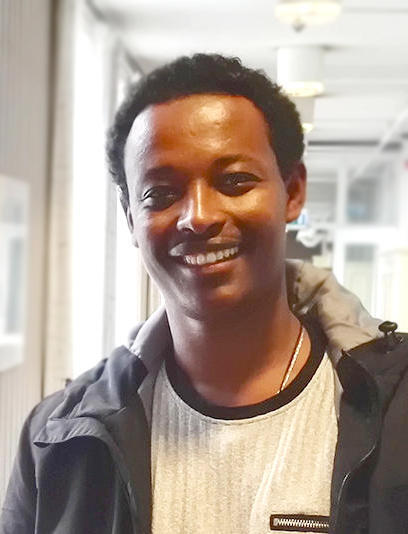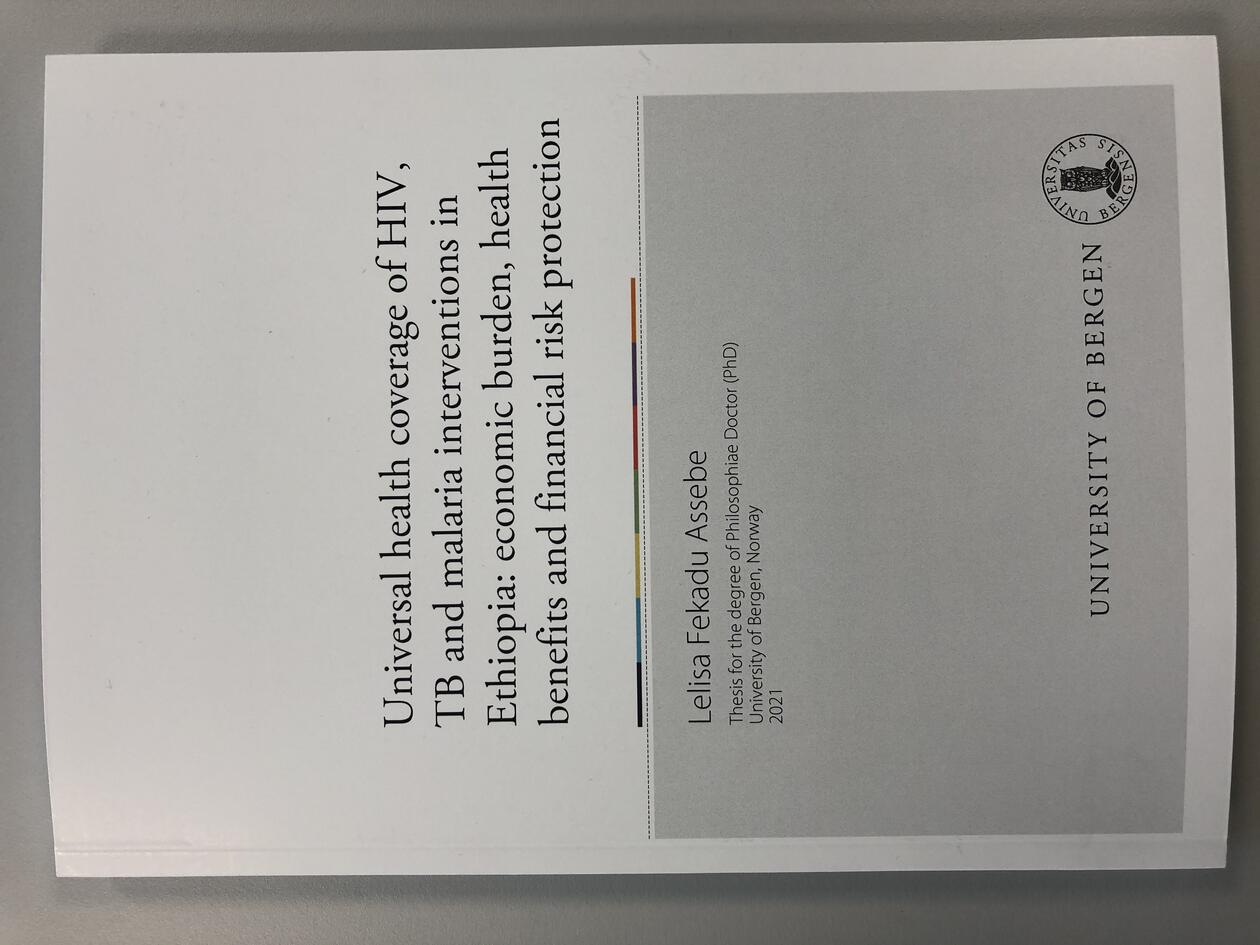Lelisa Fekadu
Lelisa Fekadu works for the Addis Centre for Ethics and Priority Setting (ACEPS) and finished his PhD in Global Public Health and Health Economics in April 2021.
Hovedinnhold
Personal and professional background
In 2009, Lelisa Fekadu graduated from Jimma University, Ethiopia, with a Bachelor of Science in Public Health. In 2013, he obtained a master’s degree in Biostatistics and Health Informatics from Mekelle University. He was enrolled in a PhD in Global Public Health and Health Economics (August 2017-April 2021) at the University of Bergen, Norway, and defended his dissertation on April 7, 2021. In addition, he has worked in multiple roles at the Ministry of Health, Ethiopia. He was a technical expert and program leader in HIV, TB and malaria for more than 10 years. He has been involved with the management of different programs related to maternal and child health, TB, TB/HIV and leprosy. As a program expert and leader, he has been involved with the adaptation and implementation of new global policies and strategies, the preparation of guidelines and concept notes, the provision of training for health professionals and follow-up of programs and grant implementations. This provided him an opportunity to work across collaborative, complex partnerships with multiple stakeholders, including the government (Ministry of Health) and the public sector, international agencies, and non-governmental organizations
Global Public Health and Health Economics PhD
The University of Bergen (UIB) has developed partnerships with a number of countries, including Ethiopia, to support intensive health system policy dialogue and priority setting exercise. Through the DCP-E project, the UIB established a mechanism to support countries' capacity, particularly in the areas of health economics, ethics, and priority setting. As part of this, UIB provides educational career opportunities through national, open competitions to enable healthcare staff to improve their skills. These opportunities, I believe, were the best of their kind, combining a specific research perspective with various collaborative projects that will fulfil my professional needs. Furthermore, in low-income countries, there is a scarcity of evidence on how to maximize and sustain equitable and high-quality health outputs, outcomes, and impacts for a given level of resources. Then came the decision to pursue a PhD, and I applied for and was accepted into a doctoral program.
Research interest
HIV, TB and malaria have a higher disease burden and economic impact than other chronic illnesses and injuries in low-income countries. These diseases are a major obstacle to social and economic progress. The concept of Universal health coverage represents both improvements in health outcomes and protection of people from financial risks induced by health-care costs. For instance, progress towards malaria and TB control provides evidence of the tangible benefits of population-wide access to life-saving interventions. Our study is targeted towards LMICs giving them an indication of health intervention costs, specifically those supported by partner organisations. The resources from partner organisations allow the disease to be exempted from user fees and provided free of charge, however, the declining donor culture calls for countries to solicit long-term sustainability of health financing. Examining economic returns, health, and non-health benefits as well as the distributional consequences of spending on diseases such as HIV, TB and malaria, is crucial for resource allocation and priority setting. Our study will be instrumental in opening the pathway to policy-makers' discussions on such issues to consider for future health work. Furthermore, the findings from this study demonstrate where the greatest gains can be made in ensuring financial protection, and help the government in reducing inequalities and prioritise measures needed to reach universal health coverage.
Experience gained during PhD
In my doctoral program, I gained knowledge on economic theories, evaluation models of healthcare programs and priority setting approaches in the context of limited resources. I acquired skills related to economic evaluation techniques and methods, including extended cost-effectiveness analysis. I have applied these skills and hands-on experiences gained at the Minstry of Health to perform priority setting and economic evaluation studies in order to support policy decisions in Ethiopia. In addition, my MSc in Biostatistics and Health Informatics provided me with a deeper understanding of statistics and modeling, which I applied to my PhD thesis. During my PhD studies, I benefited a lot from my professors, which is the most important asset in my life.
Life at UIB provides me with opportunities to expand my horizons, gain research experience and publish in peer-reviewed journals.
Future plans
So far, I have enjoyed my academic work, and when my fellowship ends, I expect to return to Ethiopia and dedicate myself to teaching and contributing more as an independent researcher. Finally, I would like to express my gratitude to all of my colleagues who have supported me (directly or indirectly) to achieve my academic goals.

